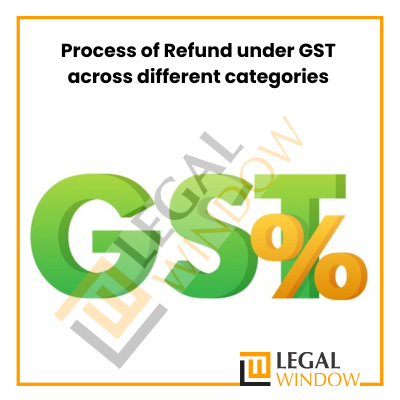India is the world’s largest sourcing destination for the Information Technology (IT) industry, accounting for approximately 67 per cent of the USD 124-130 billion market. The industry employs about 10 million workforce. This large pool of qualified skilled workforce has enabled Indian IT companies to help clients to save USD 200 billion in the last five years. India’s cost competitiveness in providing IT services, which is approximately 3-4 times cheaper than the US, continues to be the mainstay of its Unique Selling Proposition (USP) in the global sourcing market and several global IT companies are setting up their innovation Centres in India.
It is, therefore, not surprising that the government has eased foreign investment policies in order to encourage more FDI in the IT sector in India.
Snapshot of FDI Policy
Since 1991, the regulatory environment and the process to get FDI has consistently been eased to make it investor-friendly, catapulting India into the position of one of the fastest-growing economies of the world. It has been ranked (9th in terms of FDI inflows for 2016 by UNCTAD) among the top attractive destinations for inbound investments in the world. The Government with intent to attract and promote foreign investments has put in place FDI regulations in India with a framework that is transparent, predictable and easily comprehensible.
Foreign investment into a domestic entity on a strategic basis is subject to FDI policy in India. The GoI through Department of Industrial Policy & Promotion (DIPP) formulates a consolidated the process of FDI on a yearly basis which is a defined framework for FDI. Most recently, reforms were made for FDI policy in India 2019.
Foreign investors can invest directly in India, either on their own or through joint ventures in virtually all the sectors except in a very small list of activities where foreign investment is prohibited.
Routes under Foreign Direct Investment (FDI) in India
Investment in the form of FDI can be made in the following ways in India:
- Automatic Route: Prior approval is not required from Reserve Bank of India or Government of India for the activities/ Sectors mentioned under Regulation 16 of FEMA 20(R).
- Government Route: Prior approval is required from the Government of India or Reserve Bank of India. Activities/ Sectors which are not covered under the automatic route, are covered under the Government route.

Which sectors are prohibited for investment in India under FDI?
Prohibited Sector for Investment in India are mentioned below-
- Lottery Business including Government/Private Lottery, online lotteries etc,
- Chit Funds,
- Nidhi Company,
- Gambling and betting which includes Casinos,
- TDRs-Transferable Development Rights,
- Real Estate Business, where Real estate business shall not include the development of townships, constructions of residential/commercial premises, roads or bridges or Construction of Farmhouses.
- Manufacturing of cigars, cheroots, cigarillos and cigarettes, tobacco and its substitutes.
- Sectors do not open to private sector investment other than permitted sector.
FDI in Information Technology Sector
Newer investment opportunities are opening up every now and then in the Indian information technology sector. The government of India released a comprehensive FDI policy document effective starting in 2010. The government has allowed the Foreign Investment Promotion Board (FIPB), under the Ministry of Commerce and Industry, to clear FDI proposals of up to $258.3 million USD. Earlier, all project proposals that involved investment of above $129.2 million USD were put up before the Cabinet Committee of Economic Affairs (CCEA) for approval.
Newer investment opportunities are opening up every now and then in the Indian information technology sector. The government of India released a comprehensive FDI policy document effective starting in 2010. The government has allowed the Foreign Investment Promotion Board (FIPB), under the Ministry of Commerce and Industry, to clear FDI proposals of up to $258.3 million USD. Earlier, all project proposals that involved investment of above $129.2 million USD were put up before the Cabinet Committee of Economic Affairs (CCEA) for approval.
FDI Limit in IT Sector
There are few sectors for which FDI limit is not prescribed under the policy. For those, para 5.2(a) of FDI policy specifically mentions that:
“In sectors/activities not listed, FDI is permitted up to100% on the automatic route, subject to applicable laws/regulations; security and other conditionalities.”
Therefore, it shall be inferred from above that upto 100% FDI is allowed for Information Technology sector under automatic route.
Hence, As per the foreign direct investment (“FDI”) policy, 100% FDI has been allowed in the software / IT industry on an automatic basis (i.e., there is no need to obtain prior government approval). Further, since the activities of BPO companies come under the purview of “IT enabled services”, 100% FDI is permitted under the automatic route for companies carrying on such businesses. However, the activities of a BPO are subject to the guidelines as issued by the Department of Telecommunications (“DoT”).
Reporting of Foreign Investment
When an applicant is making an application for receiving foreign investment, there is a particular procedure for doing the same. In September 2018, the RBI brought out the manual regarding the process of Single Master Form (SMF) for reporting requirements regarding Foreign Investment Received in India. By having this process of reporting under the Single Master Form, the RBI can keep monitoring the amount of foreign investment received in India. This would also put a system in place to keep track of the application for foreign investment.
Takeaway
The success of Indian IT industry has captured the imagination of both India and the world. For a country, attracting an inflow of FDI strengthens the connection to world trade networks and finances its development path. Foreign investment plays a significant role in development of India’s economy. FDI acts as a bridge to fill the gap between investment and saving. Many countries provide incentives for attracting the FDI.
CA Pulkit Goyal, is a fellow member of the Institute of Chartered Accountants of India (ICAI) having 10 years of experience in the profession of Chartered Accountancy and thorough understanding of the corporate as well as non-corporate entities taxation system. His core area of practice is foreign company taxation which has given him an edge in analytical thinking & executing assignments with a unique perspective. He has worked as a consultant with professionally managed corporates. He has experience of writing in different areas and keep at pace with the latest changes and analyze the different implications of various provisions of the act.
Categories
- Agreement Drafting (23)
- Annual Compliance (11)
- Change in Business (36)
- Company Law (147)
- Compliance (88)
- Digital Banking (3)
- Drug License (3)
- FEMA (17)
- Finance Company (42)
- Foreign Taxation (6)
- FSSAI License/Registration (14)
- GST (116)
- Hallmark Registration (1)
- Income Tax (199)
- Latest News (34)
- Miscellaneous (164)
- NBFC Registration (8)
- NGO (14)
- SEBI Registration (6)
- Section 8 Company (7)
- Start and manage a business (20)
- Startup/ Registration (126)
- Trademark Registration/IPR (40)
Recent Posts
About us
LegalWindow.in is a professional technology driven platform of multidisciplined experts like CA/CS/Lawyers spanning with an aim to provide concrete solution to individuals, start-ups and other business organisation by maximising their growth at an affordable cost.







